I'm having trouble getting data every newline from standard ouput. Data is produced by C program. This is the C code:
// gcc counter.c -o counter
#include <stdio.h>
#include <unistd.h>
int main(int argc, char *argv[]) {
unsigned int i = 0;
while(1) {
printf("%d\n", i);
sleep(1);
i++;
}
}
My goal is to get the same behaviour as this haskell function below:
timeSource :: MonadIO m => Source m TL.Text
timeSource = forever $ do
now <- liftIO getCurrentTime
yield $ TL.pack $ show now
liftIO $ threadDelay 1000000
I tried using readProcess and readCreateProcess from System.Process module. This is one of my tries:
counter :: MonadIO m => Source m TL.Text
counter = do
r <- liftIO $ readCreateProcess (proc "./counter" []) ""
-- r <- liftIO $ readProcess "./counter" [] []
yield $ TL.pack $ show r
liftIO $ threadDelay 1000000
This is how I use counter function within webSockets:
webSockets $ race_
(sourceWS $$ Data.Conduit.List.map TL.toUpper =$ sinkWSText)
-- (timeSource $$ sinkWSText)
(counter $$ sinkWSText)
When I open http://localhost:3000/, it doesn't work. Here's the complete code.
{-# LANGUAGE QuasiQuotes, TemplateHaskell, TypeFamilies, OverloadedStrings #-}
module Main where
import Yesod.Core
import Yesod.WebSockets
import qualified Data.Text.Lazy as TL
import Control.Monad (forever)
import Control.Concurrent (threadDelay)
import Data.Time
import Data.Conduit
import System.Process
import qualified Data.Conduit.List
data App = App
instance Yesod App
mkYesod "App" [parseRoutes|
/ HomeR GET
|]
timeSource :: MonadIO m => Source m TL.Text
timeSource = forever $ do
now <- liftIO getCurrentTime
yield $ TL.pack $ show now
liftIO $ threadDelay 1000000
counter :: MonadIO m => Source m TL.Text
counter = do
r <- liftIO $ readCreateProcess (proc "./counter" []) ""
-- r <- liftIO $ readProcess "./counter" [] []
yield $ TL.pack $ show r
liftIO $ threadDelay 1000000
getHomeR :: Handler Html
getHomeR = do
webSockets $ race_
(sourceWS $$ Data.Conduit.List.map TL.toUpper =$ sinkWSText)
(timeSource $$ sinkWSText)
-- (counter $$ sinkWSText)
defaultLayout $
toWidget
[julius|
var conn = new WebSocket("ws://localhost:3000/");
conn.onopen = function() {
document.write("<p>open!</p>");
document.write("<button id=button>Send another message</button>")
document.getElementById("button").addEventListener("click", function(){
var msg = prompt("Enter a message for the server");
conn.send(msg);
});
conn.send("hello world");
};
conn.onmessage = function(e) {
document.write("<p>" + e.data + "</p>");
};
conn.onclose = function () {
document.write("<p>Connection Closed</p>");
};
|]
main :: IO ()
main = warp 3000 App
So my question is how to access data every printf in infinite loop and use it in Haskell?
EDIT 1:
Based on MathematicalOrchid's suggestion, here's what I did so far.
counter :: MonadIO m => Source m TL.Text
counter = do
r <- liftIO $ createProcess (proc "./counter" []){ std_out = CreatePipe, std_in = CreatePipe}
let (Just inp, Just outp, _, phandle) = r
liftIO $ hSetBuffering outp LineBuffering
contents <- liftIO $ hGetLine outp
yield $ TL.pack $ show contents
liftIO $ threadDelay 1000000
I suppose it's still blocking until the process terminates.
EDIT 2:
For testing if createProcess works I tried this.
counterTest :: IO ()
counterTest = do
r <- createProcess (proc "./counter" []){ std_out = CreatePipe, std_in = CreatePipe}
let (Just inp, Just outp, _, phandle) = r
hSetBuffering outp LineBuffering
contents <- hGetLine outp
print contents
Apparently It's still blocking.
